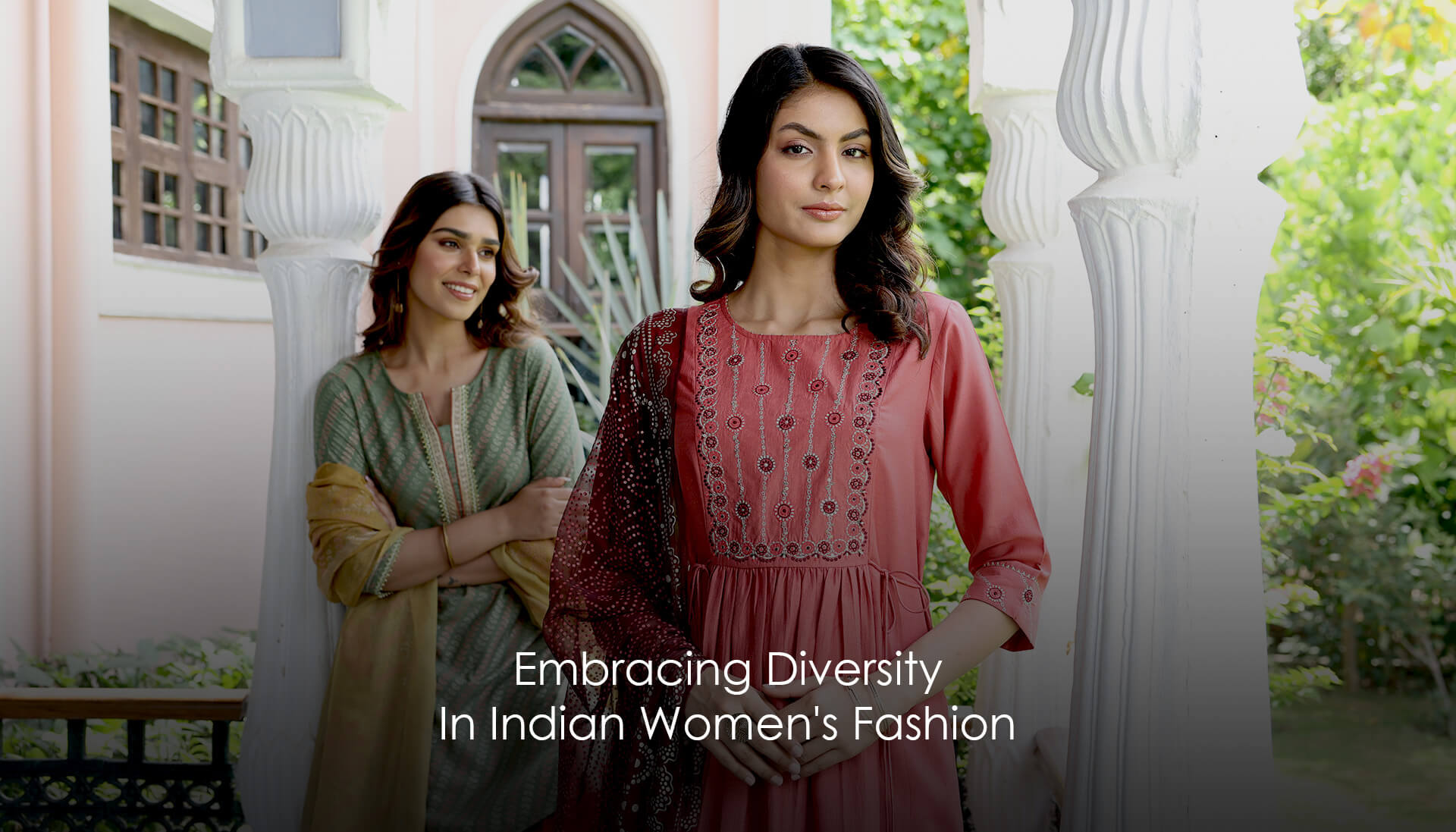Cultural Heritage And Identity: Celebrating Indian Womanhood
India, a land rich in cultural diversity and historical significance, has nurtured a vibrant tapestry of traditions, customs, and values that have shaped the identity of its people for millennia. Central to this cultural heritage is the celebration of Indian womanhood, which exemplifies the resilience, strength, and grace of women across the country. Throughout history, Indian women have played pivotal roles in shaping their families, communities, and society at large, contributing significantly to art, literature, politics, and every sphere of life. In this blog, we will delve into the cultural heritage of India and explore how it intertwines with the celebration of Indian womanhood, highlighting the crucial role of women in preserving and enriching this heritage.
- Historical Perspective

The rich cultural heritage of India is deeply rooted in its history, encompassing numerous civilizations, empires, and dynasties that have flourished on its soil. From the ancient Indus Valley Civilization to the vast Maurya and Gupta empires, Indian women have played significant roles in the socio-economic, political, and cultural spheres. Examples of powerful and influential women like Rani Padmini, Razia Sultana, and Rani Lakshmibai have inspired generations with their courage and determination.
- Women in Indian Mythology

Indian mythology offers a myriad of fascinating tales of divine and mortal women who exemplify strength, intelligence, and virtue. Goddesses like Durga, Saraswati, and Lakshmi are worshipped for their embodiment of feminine power, wisdom, and prosperity. These deities serve as symbols of empowerment and provide a foundation for the reverence of women in Indian society. Additionally, the epics Ramayana and Mahabharata showcase the diverse roles and responsibilities of women, including Sita's loyalty, Draupadi's resilience, and the wisdom of women like Kunti and Gandhari.
- The Influence of Art and Literature
Indian art and literature have played a significant role in depicting and celebrating the multifaceted aspects of womanhood. Traditional dance forms like Bharatanatyam, Odissi, and Kathak beautifully express emotions and narratives through graceful movements. Women performers have been instrumental in preserving and promoting these art forms, passing them down through generations.

Literature, too, has been enriched by the contributions of Indian women writers like Sarojini Naidu, Amrita Pritam, and Arundhati Roy, who have used their pens to voice societal issues, emotions, and aspirations. Their literary works have contributed to the understanding of Indian culture and womanhood, transcending geographical boundaries and resonating with readers worldwide.
- Roles and Traditions: Past and Present
Indian women have traditionally played diverse roles, from being devoted daughters, loving sisters, and caring mothers to being strong pillars of support to their families. Despite facing social constraints and discrimination in the past, Indian women have consistently contributed to the economic growth of their households and the nation as a whole. In rural areas, they have been actively involved in agriculture and animal husbandry, ensuring food security and rural sustainability.

Moreover, Indian women have continued to preserve and pass down traditional knowledge, including ancient recipes, handicraft techniques, and cultural practices. This transmission of wisdom from one generation of women to the next is instrumental in preserving the essence of Indian heritage.
- Clothing Culture and Indian Women
The culture of clothes in India is a vibrant expression of the country's cultural heritage and identity. Traditional wear for women varies across regions, showcasing the diversity and richness of Indian fashion. From sarees in the north to salwar kameez in the south, each ethnic dress design carries a unique story and significance.
In recent times, modern elements have seamlessly merged with traditional clothing, giving rise to a fusion of ethnic and contemporary styles. Party wear kurtis for women, for instance, have become a popular choice for special occasions, blending traditional elegance with modern comfort.
The significance of cultural clothing goes beyond aesthetics. It serves as a way for women to connect with their roots, celebrate their heritage, and feel a sense of belonging to their community and country.
- Empowering Women through Ethnic Wear
Ethnic wear for women not only celebrates Indian culture but also empowers women by making them feel confident, graceful, and proud of their identity. When women adorn themselves in traditional attire, they radiate a sense of cultural pride and exude an aura of strength.
In recent years, the demand for Indian ethnic wear has surged, both in domestic and international markets. The availability of the best Indian ethnic wear online has made it convenient for women worldwide to embrace and celebrate Indian fashion.
- Indian Ethnic Wear for Festivals
Festivals in India provide a perfect occasion to showcase the beauty of traditional clothing. During festivals like Diwali, Navratri, and Durga Puja, women adorn themselves in exquisite ethnic wear, enhancing the festive spirit and cultural pride.

The celebration of Indian womanhood is deeply intertwined with the cultural heritage of India. Throughout history, women have played indispensable roles in shaping the nation's identity through their contributions to art, literature, traditions, and the economy. As Indian women continue to make strides in various spheres, their resilience, determination, and accomplishments serve as an inspiration to future generations.
By preserving and celebrating their cultural heritage, Indian women proudly pave the way for a brighter and more equitable future, where the essence of their identity remains steadfast and cherished. The fusion of tradition and modernity in clothing culture enriches the celebration of Indian womanhood, empowering women to embrace their heritage and be the torchbearers of cultural legacy. Let us celebrate and honor the strength and spirit of Indian womanhood, acknowledging that their empowerment is vital for the overall progress and prosperity of the nation.



